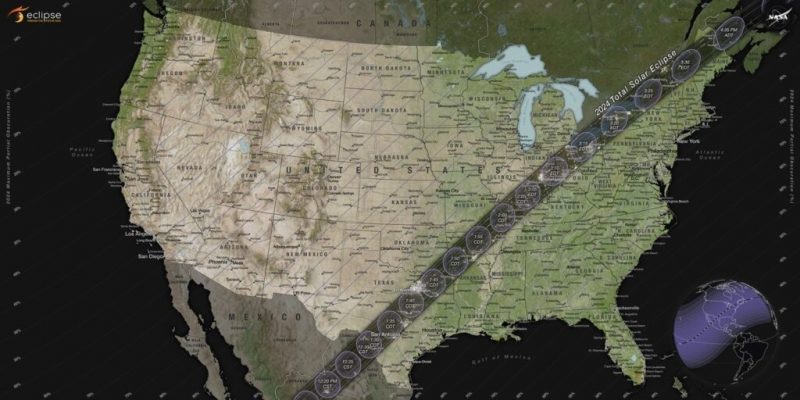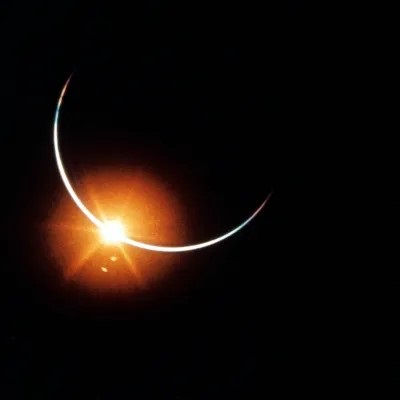Most of North America will have the chance to see the moon pass in front of the sun during a solar eclipse Monday, April 8. NASA is inviting the public to participate with in-person events, opportunities to do NASA science, and multiple ways to watch online.
Millions of people along the path of totality – which stretches from Texas to Maine in the United States – will see a total solar eclipse, when the moon completely covers the sun. Outside the path of totality, people across the contiguous United States will have a chance to see a partial solar eclipse, when the moon covers part of the sun. Learn how to safely view this celestial event.
NASA will host live coverage of the eclipse starting at 1 p.m. EDT. The agency’s eclipse coverage will include live views of the eclipse from across North America, special appearances by NASA experts, astronauts aboard the space station, and an inside look at NASA’s eclipse science experiments and watch parties across the country. NASA’s broadcast will last three hours and features live locations from across the nation including the agency’s only center in the path of totality, NASA’s Glenn Research Center in Ohio, and other locations.
The NASA broadcast will stream on NASA+, air on NASA TV, and the agency’s website. Learn how to stream NASA TV through a variety of platforms including social media and the agency’s app.
NASA also will host a watch party of the eclipse in Spanish starting at 1:30 p.m. on YouTube.

NASA will provide a no-commentary, telescope-only feed of the eclipse on NASA Television’s media channel and YouTube, starting at 1 p.m. and running for three hours. The telescope feed will incorporate views from multiple locations, and will be switched based on weather, the eclipse’s progress, and feed availability.
NASA’s Wallops Flight Facility in Virginia will provide a commentated livestream of three sounding rocket launches for the Atmospheric Perturbations around Eclipse Path mission. The livestream will begin at 2:30 p.m. on NASA Wallops’ YouTube channel and conclude after the last of the three sounding rocket launches.
NASA’s interactive Eclipse Explorer Map will allow users to track the total solar eclipse in real time on April 8 as it moves across North America. Use the tool ahead of time to search by zip code or city for eclipse timing, get real-time weather updates, percent of eclipse coverage, and even a corona prediction for locations in the path of totality.
To learn more about the total solar eclipse, see go.nasa.gov/Eclipse2024








